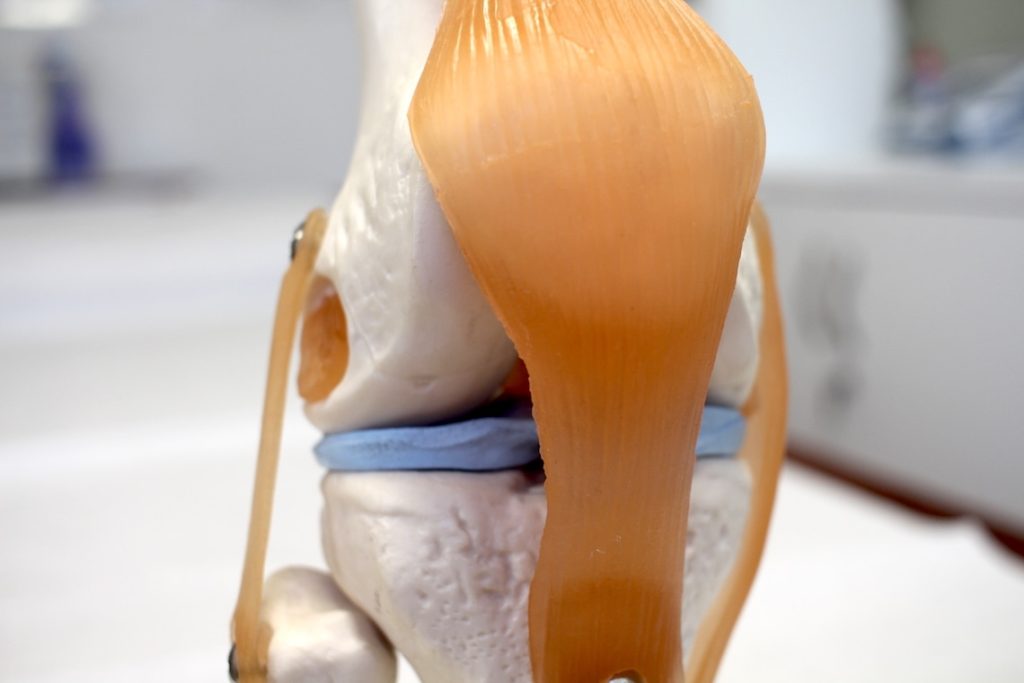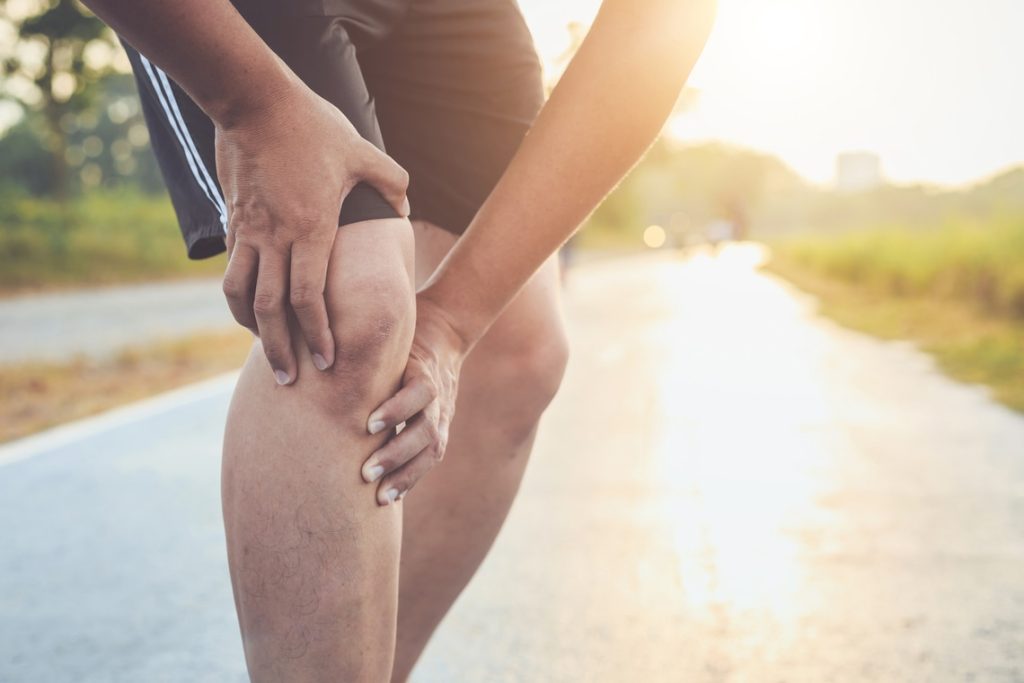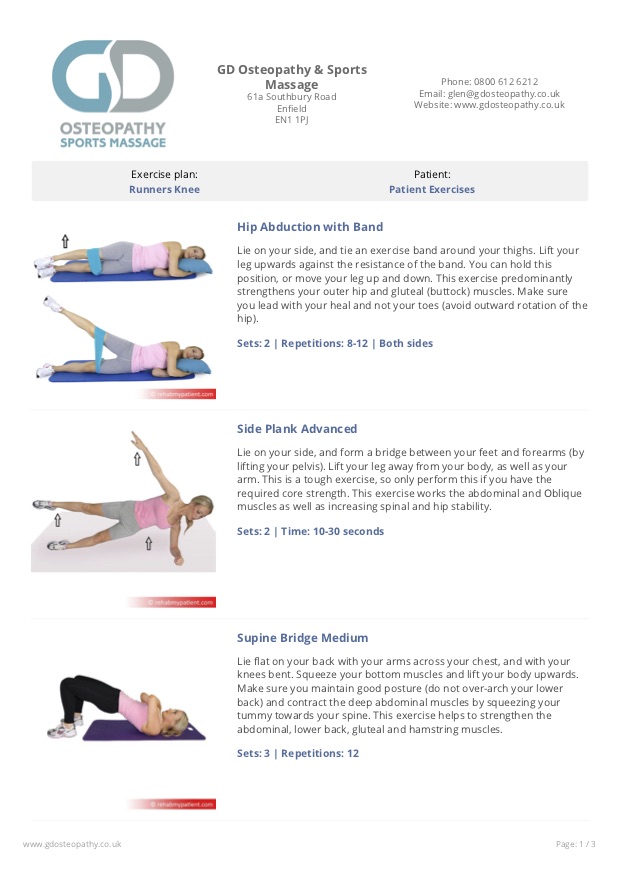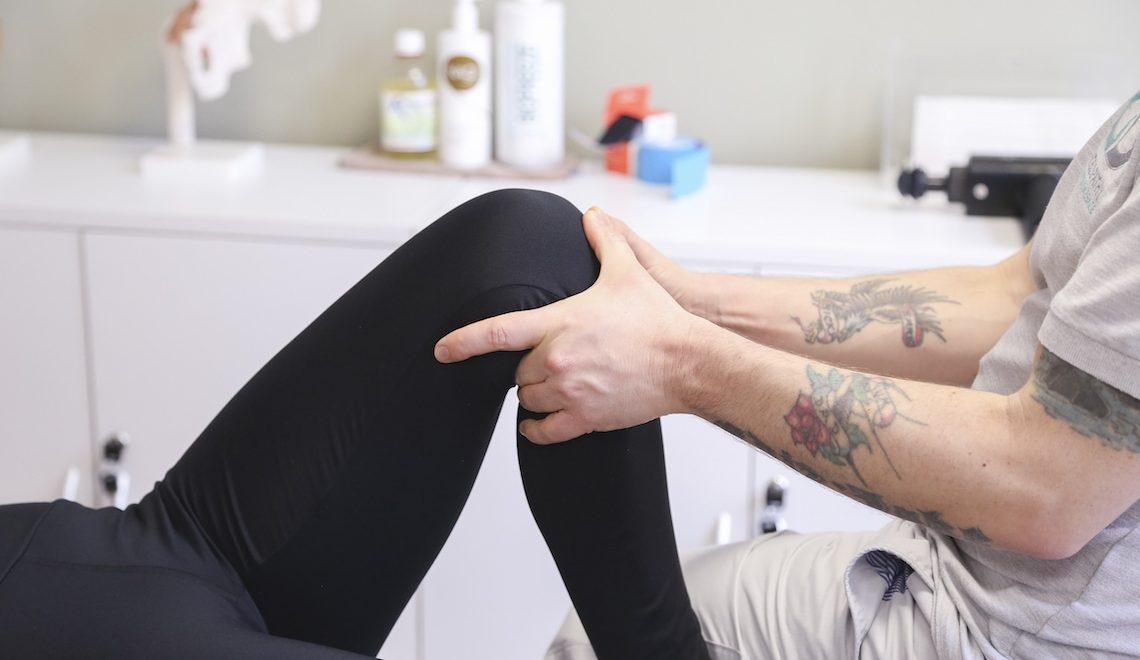What is runners knee?
Runner’s knee is a general term used to describe several different conditions that cause pain in and around the kneecap. These conditions include injuries such as patellofemoral pain syndrome, chondromalacia patella, patellar malalignment and ITB syndrome.
Runners knee is common in runners, but any activity that places repeated stress on the knee can cause this injury. For example football, hiking, cycling and jumping. Women are slightly more prone to runners knee than men and being overweight can increase your risk of developing symptoms.
Women tend to have wider pelvises, this tends to increase the angle at the hips and knees. This means the hip stabilisers and supportive muscles have a little more work to do. Being overweight significantly increases the load on your knees. For example, studies show a load between 3-4 times your bodyweight is put on your kneecap as you go up or down stairs.

Common causes
Activities that tend to bring on runners knee include:
- running
- walking
- hiking
- cycling
- spinning
- football
- skiing
- jumping
- HIIT workouts
The pain of runners knee tends to originate from the muscles, tendons and soft tissues around the kneecap or damage to the cartilage beneath it. The real underlying cause is normally a combination of the above activities, with one or more of the following:
- overuse
- kneecap trauma
- misalignment
- muscle imbalance
- arthritis
- poor prehab
Symptoms
Classically you may feel a dull aching pain under or around the kneecap. You may hear popping or grinding known as crepitus when you bend your knee. Symptoms are often aggravated by:
- running
- going up or down stairs
- squatting
- walking
- kneeling
- standing after sitting for some time
The knee joint

Treating Runners Knee
The treatment and management of runners knee varies depending on the exact cause and predisposing factors. But generally we look to accomplish three things.
- Reduce further progression of the injury. This may involve reduction or modification of your activities. We want to reduce any underlying inflammation with non-steroidal anti-inflammatory medication and ICE. We can also unload the knee with the use of taping techniques.
- Correct muscle imbalance and alignment. Imbalance of the muscles around the thigh can cause the knee, or the kneecap to move incorrectly. Muscles that are too weak, inactive or overly tight need to be addressed.
- Optimise your biomechanics with rehabilitation exercises. Poor gluteal activation tends to overload the quadricep muscles, leading to increased stress on the knees. Poor hip stabilisation increases the stress on the inside knee, iliotibial band and can cause maltracking of the kneecap.
Runners knee doesn’t have to finish your running career, with the correct treatment and management, symptoms can improve within 1 to 4 weeks. Following recovery a couple of prehab exercises performed once or twice a week is normally enough to prevent any reoccurrence.
FREE Exercise Plan
Click on the image below to download your free runners knee home exercise plan. Perform these exercises 3 times a week. You should consult your local expert for further advice a full assessment and treatment.


